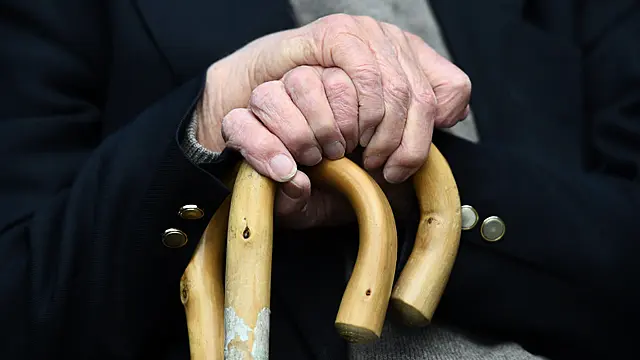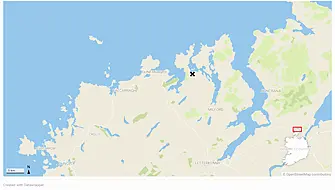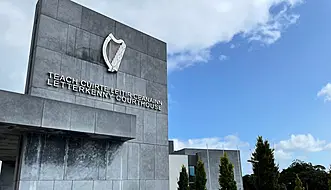The Government has been recommended to introduce legislation allowing for assisted dying in certain restricted circumstances, a report has stated.
The Special Oireachtas Joint Committee on Assisted Dying was set up last year to consider and make recommendations for legislative and policy change relating to a legal right to assist a person to end their life and a legal right to receive such assistance.
The final report, published on Wednesday, makes 38 recommendations.
Committee members did not agree on any one form of wording on the topic, so the terms of assisted suicide and euthanasia are also used.
The Joint Committee on Assisted Dying has published its final report.
✅Release: https://t.co/UpU4Ou0C0H
✅Report: https://t.co/wjUZ6bk1NH pic.twitter.com/FYAWVO3wul— Houses of the Oireachtas - Tithe an Oireachtais (@OireachtasNews) March 20, 2024
It recommends that assisted dying should be allowed in restricted circumstances, limiting it to those with six months to live, or 12 months in the case of a person with a neurodegenerative disease, illness or condition.
The committee also recommended that the right to conscientious objection of all doctors and health workers directly involved in the provision of assisted dying should be protected in law.
It also stated that any potential legislation on assisted dying uses clear and unambiguous terms and definitions, to avoid scope for uncertainty, and that any person inquiring about assisted dying, following a terminal diagnosis, should be informed of accessing all end-of-life care options.
The report also states that palliative care and the operation of assisted dying should operate completely separately and independently of each other and that resources and funding for palliative care services should be substantially increased.
It also recommended that anyone who coerces a person into assisted dying will be guilty of a criminal offence under the legislation.
Doctors and healthcare workers involved in the provision of assisted dying should also be trained to the highest level possible to identify coercion when assessing or treating a patient.
It further recommends that if a medical professional has been proven to have acted outside the permitted regulations or has attempted to coerce an individual, they will have committed an offence.
The Joint Committee on Assisted Dying published its final report making 38 recommendations. It concluded by a clear majority that legislation needs to happen. This is hugely significant in this ongoing debate that has its genesis in those that have gone before. pic.twitter.com/PNiJqztWOP
— Gino Kenny TD (@Ginosocialist) March 20, 2024
The report also said that if assisted dying is introduced, an assessment by a qualified psychiatrist should be required in circumstances where the patient is deemed eligible but there are concerns about whether the person is competent to make an informed decision.
The Committee recommends that eligibility for assisted dying should be limited to Irish citizens or those ordinarily resident in the State for a period of not less than 12 months.
The Committee recommends that assisted dying should be limited to people aged 18 or over, and are Irish citizens.
The report lead to a split in the committee after its chair, Michael Healy-Rae, refused to support its recommendations.
Three members of the Committee, including Mr Healy-Rae, TD Robert Troy and Senator Ronan Mullen have come out against the report, claiming the case for assisted dying “has not been established”.
They launched an alternative report, including a number of their own recommendations.
This included that carers be robustly supported in their caring duties; that all healthcare providers develop a model of care, and that sufficient funding be provided for suicide prevention programmes, including addressing the causes of suicide among older people.
They also call for studies on ableism in society, on the impact of economic disadvantage and health inequalities on causing people to feel a burden.
They also called for ongoing studies into pain management and pain research, as well as for research into the problem of coercion.
Mr Mullen said: “Any advertising or initiation of conversations around assisted dying could endanger vulnerable and suggestible persons coping with terminal illness.
“It would also leave them more exposed to the risk of coercion.”
He claimed that the Committee report did not manage to limit the “potential gravity and risks of abuse” in what it was proposing.
Mr Healy-Rae said: “We all need to hear the clear voice of medical professionals who believe that doctor-patient trust would be undermined by assisted dying.
“Less harmful, even if still high risk, would be a model where applications for assisted dying would be handled by a licensing body, outside of the mainstream healthcare sector, but we should never be presenting assisted dying as a healthcare issue.
“A society with assisted dying cannot properly protect the vulnerable in society.
“It will be even less able to do so if assisted dying is built into its healthcare system in any way.”







